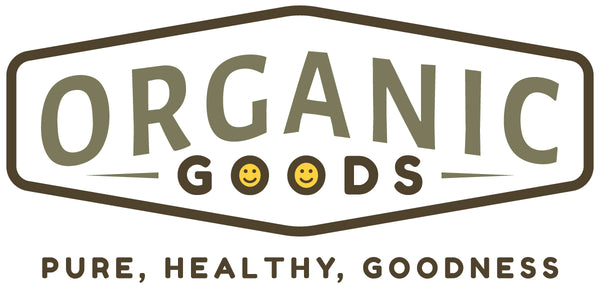
Organic Eats: A Comprehensive Guide to Incorporating Natural Ingredients into Your Diet
Share
Table of Contents
- Introduction: The Importance of Organic Eats
- Maximizing Nutritional Intake with Organic Foods
- Reducing Exposure to Harmful Chemicals
- Promoting Sustainable Agriculture
- Incorporating Organic Foods into Your Diet
- The Future of Organic Eating
Introduction: The Importance of Organic Eats
Organic foods have become increasingly popular in recent years, as more people are becoming aware of the potential health and environmental benefits they offer. The term "organic" refers to the way agricultural products are grown and processed, without the use of synthetic pesticides, bioengineered genes (GMOs), petroleum-based fertilizers, or sewage sludge-based fertilizers. The significance of incorporating organic foods into your diet lies in three main areas: enhancing nutritional intake, reducing exposure to harmful chemicals, and promoting sustainable agriculture.
• Organic foods often contain higher nutrient levels than their conventionally-grown counterparts. • Consuming organic foods can reduce exposure to potentially harmful synthetic pesticides and GMOs.Maximizing Nutritional Intake with Organic Foods
Several studies have suggested that organic foods, especially fruits and vegetables, contain higher levels of certain nutrients compared to conventionally-grown produce. These nutrients include antioxidants, which are compounds that help protect our bodies from damage by free radicals, unstable molecules that can cause cellular damage. Organic farming practices are also believed to result in produce with lower levels of heavy metals, such as cadmium, which can be harmful when consumed in large amounts.
Reducing Exposure to Harmful Chemicals
The use of synthetic pesticides is heavily regulated in organic farming, meaning that organic produce generally contains fewer pesticide residues than conventionally-grown produce. Synthetic pesticides have been linked to a range of health problems, including neurological issues, cancer, and hormone disruption. By choosing organic foods, we can significantly reduce our exposure to these potentially harmful chemicals.
Promoting Sustainable Agriculture
Organic farming practices not only benefit our health, but they also promote sustainability. They tend to be more environmentally friendly, helping to maintain biodiversity, improve soil quality, and reduce pollution. Organic farmers often use methods like crop rotation and cover crops to maintain soil health, prevent pests, and reduce the need for synthetic inputs. Choosing organic products can thus help support these sustainable practices.
Incorporating Organic Foods into Your Diet
There are many ways to incorporate organic foods into your daily diet. Start by replacing staple items like fruits, vegetables, and grains with organic versions. When shopping, look for products with the USDA organic seal, which ensures that the product meets strict organic standards. While organic foods can sometimes be more expensive, buying in season and choosing store-brand organic products can help make them more affordable. Remember, even small changes can make a big difference in your health and the environment.
The Future of Organic Eating
As consumers become more educated about the benefits of organic foods, the demand for such products is likely to continue growing. With increased research and development, we can expect to see more innovative ways to produce and process organic foods, making them more accessible and affordable for everyone. In the meantime, we can all do our part by making conscious food choices, supporting local organic farmers, and advocating for policies that promote sustainable agriculture.
Furthermore, it is vital to recognize the importance of education in promoting sustainable agriculture. By raising awareness about the harmful effects of conventional farming techniques, we can foster a deeper understanding of the need for sustainable practices. This can be achieved through workshops, seminars, and school programs that focus on teaching about the benefits of organic farming, soil conservation, and the use of renewable resources. It is also crucial to empower farmers with knowledge and skills needed to transition from traditional to sustainable farming methods.
Equally important is the role of government and non-government organizations in supporting sustainable agriculture. They can provide financial assistance, technical support and training to farmers willing to adopt sustainable practices. Additionally, creating laws and regulations that encourage sustainable farming, while penalizing harmful farming practices can significantly contribute to the shift towards sustainable agriculture.
In conclusion, embracing sustainable agriculture is not just beneficial for farmers and the environment, but for everyone. The food we eat directly impacts our health, and by choosing sustainable, we are choosing a healthier future for ourselves and generations to come. So let's continue to make conscious choices, support sustainable farming, and advocate for policies that will make a difference in our world. In the pursuit of a greener future, our individual and collective choices are key. We can make a profound impact by opting for organic produce, reducing our meat consumption, and reducing food wastage. By making these conscious choices, we are not only safeguarding our health but also supporting responsible farming practices that respect the environment. It's about understanding the link between our plates and the planet, and making the right choices that benefit both. Sustainable farming methods, such as permaculture or organic farming, deserve our support. They prioritize biodiversity, soil health, and animal welfare over purely profit-driven practices. By buying their produce, we are directly contributing to a more sustainable food system. Moreover, we are sending a powerful message to the broader market about the kind of practices we want to support. However, consumer choices alone are not enough to drive the necessary change. Advocacy for better policies is crucial as well. From supporting initiatives that promote sustainable farming to demanding stricter regulations against harmful agricultural practices, our voices can make a significant difference. Indeed, policy-making has the power to transform the food system at a structural level, making it more sustainable and equitable. So let's continue on this journey towards a healthier, greener future. Let's make conscious choices that are good for us and good for the planet, support sustainable farming, and use our voices to advocate for better policies. Together, we can make a difference and pave the way for a more sustainable world for generations to come.
